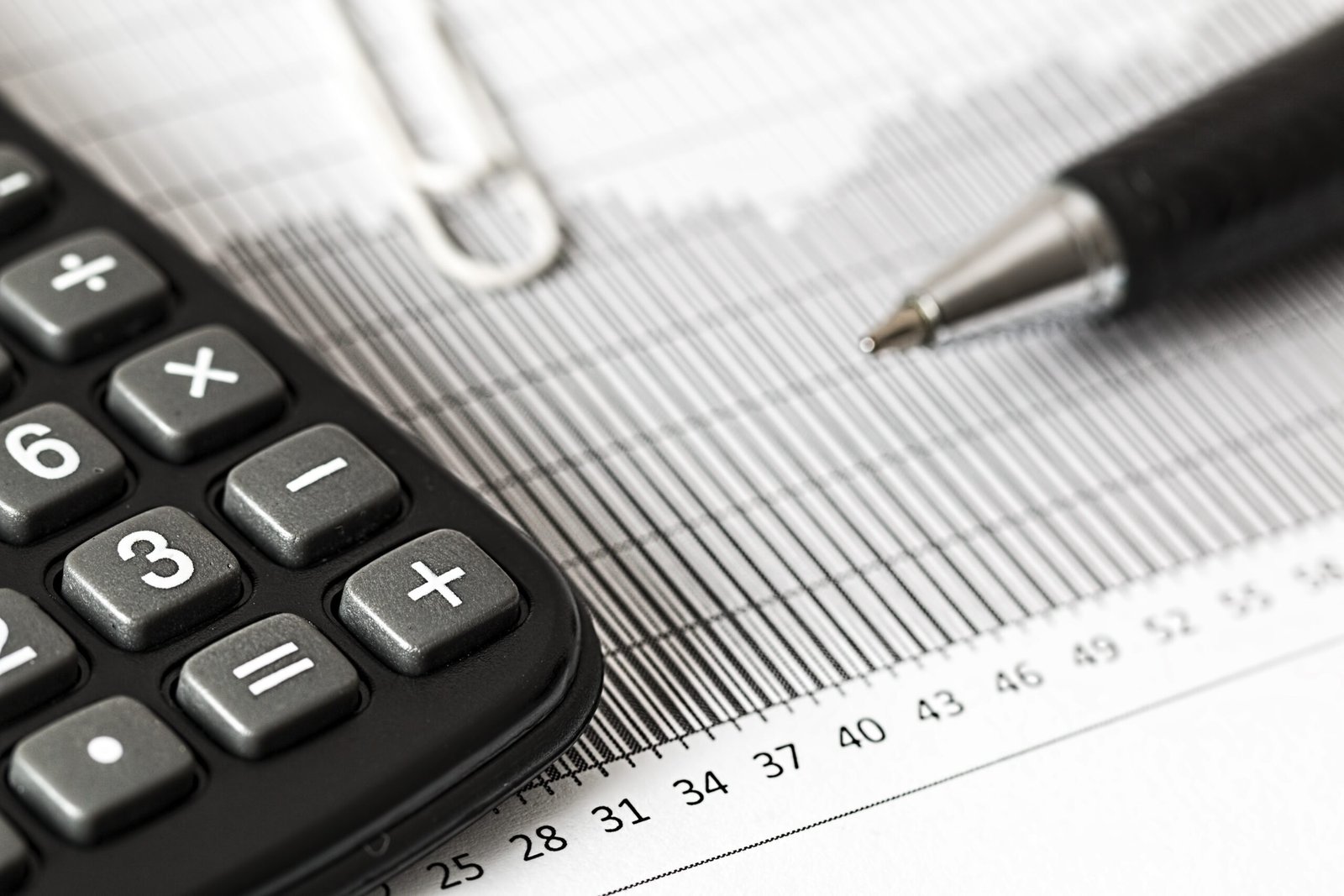COLOMBIAN TAXES FOR FOREIGNERS: A COMPREHENSIVE GUIDE
Breaking down Colombian taxes for foreigners: an easy guide
When you consider moving to Colombia, living in Colombia, or even just visiting the country, many aspects should be kept in mind besides choosing the perfect city or perhaps obtaining your Colombian resident visa, (for which we have an entire section here in our page that you should definitely check out), like remembering some other important duties, one of them is: getting to know how Colombian taxes for foreigners work.
So, the question is: do you, as a foreigner in Colombia, have to pay taxes? How can you be sure if you qualify as a tax resident in Colombia? And if so, are you eligible to declare taxes in the country?
Here we explain how Colombian taxes for foreigners work: plain and simple.
Determining if you are a tax resident in Colombia
First things first, to become familiar with Colombian tax law, you need to ensure that you are considered a tax resident in the country.
What is the tax residency in Colombia?
According to Colombian law, an individual is considered a tax resident if:
- They have stayed in the country (continuously or not) for more than 183 days (taking into account entry and exit dates) within a period of 365 consecutive days. If the 183-day period spans two different calendar years, the individual would be considered a Colombian taxpayer for the second year.
Here, the days count from the day you arrived in the country to the day you left. Importantly, it doesn’t matter which month you arrived; it will be counted over a period of exactly 365 days, even across different years.
- If they are related to the foreign service of the Colombian state.
Or, if they are Colombian nationals, not only if they were actually born in the country but also because of their condition, i.e., foreigners who now own a Colombian “cédula” or ID. For this particular category, there are also some other conditions attached to it; first, when 50% or more of the individual’s income comes from a national source, when 50% or more of their assets are administered in Colombia, when 50% or more of their assets are understood to be owned in Colombia, if they have not yet been able to prove that they reside in another country, OR if their place of residency is considered a tax haven country according to Colombian law.
An individual is considered a tax resident in Colombia if they have stayed in the country for more than 183 days per year, if related to the foreign service of the Colombian state or if they are Colombian nationals, not only if they were actually born in the country but also because of their condition.
- DIAN
So you are a tax resident, what's next?
How long can I stay in Colombia without paying taxes?
In Colombia, you are considered a tax resident if you stay in the country more than 183 days per year.
Yet, being a tax resident does not necessarily mean you have to declare taxes in Colombia, as declaring taxes in Colombia will finally depend on your income itself, not relying only on whether you are a tax resident in the country or not.
And the other side of the coin is, when you are not considered a tax resident in Colombia BUT you earn income in Colombia, if this is the case, you will have to declare taxes in the country.
Colombia has tax relationships with many countries preventing double taxation, meaning that even though you must file taxes in Colombia, you’ll likely only pay taxes in your home country, so make sure you get in contact with our specialized legal team to evaluate your specific case first.
There’s the case that, if you do not meet the requirements to become a tax resident in Colombia, you will be even allowed to live in Colombia without even having to declare income at all, but this is, depending on the amount of your income.
Now, if you do meet the conditions and must declare income tax in Colombia, it is advisable to do a tax projection before becoming a tax resident, since there are several deductions that can be made in your return, such as taxes paid abroad.
Your situation could be that you can live in Colombia and that after deductions your taxes are cero, in order to evaluate this situation it is necessary to review all the income generating agents in Colombia from abroad to be able to project your taxes in case you become a tax resident in Colombia.
All situations may differ and be unique depending on your specific case, this is why we reinforce the importance of having the right legal assistance by your side when doing your taxes as a foreigner in Colombia.
So, do foreigners have to pay taxes in Colombia?
The answer is yes, but only if you as a foreigner resided more than 183 days per year in the country or you earn income in Colombia and further fulfill other characteristics, unless of course, you already are a foreigner who is considered as a national, belonging to that last previously explained category.
Being a tax resident in Colombia does not automatically mean you are required to report your income, this is, depending on the amount of your income.

What are the most important taxes in Colombia?
The primary Taxes in Colombia are Value-Added Tax (VAT), Financial Transactions Tax, Stamp Tax, Income Tax, and Wealth Tax.
Income tax is a tax that applies to natural persons and legal entities who must pay it to the state based on their salary, earnings, commissions, and other income marked on the previous year.
So, your tax return is basically the information that the DIAN (the Colombian Tax and Customs National Authority) requires you to submit in order to calculate your income tax obligation.
The fact that you are required to report your income or not will finally depend on your income itself, not relying only on your tax residency, since you can be a tax resident but not required to declare your tax income, depending on it’s amount.
The income statement you present is based upon the economic transactions of your previous year, for example, your income statement of 2024 will be based on your movements of 2023.
What is the tax rate in Colombia for 2024?
Personal Income Tax Rate in Colombia is of 35 % for 2024, and natural persons that are required to declare the 2024 income tax are those whose:
Gross equity at the end of the 2023 fiscal year is equal to or greater than $211.792.500 COP.
Income of the taxable year is either $65.891.000COP or equal to it.
Credit card payments accounted for a total amount of more than $65.891.000COP.
Total value of purchases and consumption is equal to or more than $65.891.000 COP.
Total value of accumulated income from bank appropriations, deposits, or financial investments is at least $65.891.000COP.
Income tax in Colombia: Deadlines

For the income statement of natural persons in Colombia, the first step is to take a look at the DIAN 2024 tax calendar. It is between August 12/2024 and October 24/2024, that the natural person who meets the previously detailed criteria is required to file their tax return.
The due date for the declaration and payment appears on the dates shown below, taking into account the preceding two numbers of the NIT corresponding to the RUT, (your tax identification numbers).
It is very important to do it before the established date and protect yourself against possible fines.
Last digits of your NIT and deadline to declare:
| DIGITS | DEADLINE | DIGITS | DEADLINE | DIGITS | DEADLINE | DIGITS | DEADLINE |
|---|---|---|---|---|---|---|---|
| 01 and 02 | August 12 | 27 and 28 | September 2 | 53 and 54 | September 19 | 79 and 80 | October 9 |
| 03 and 04 | August 13 | 29 and 30 | September 3 | 55 and 56 | September 20 | 81 and 82 | October 10 |
| 05 and 06 | August 14 | 31 and 32 | September 4 | 57 and 58 | September 23 | 83 and 84 | October 11 |
| 07 and 08 | August 15 | 33 and 34 | September 5 | 59 and 60 | September 24 | 85 and 86 | October 15 |
| 09 and 10 | August 16 | 35 and 36 | September 6 | 61 and 62 | September 25 | 87 and 88 | October 16 |
| 11 and 12 | August 20 | 37 and 38 | September 9 | 63 and 64 | September 26 | 89 and 90 | October 17 |
| 13 and 14 | August 21 | 39 and 40 | September 10 | 65 and 66 | September 27 | 91 and 92 | October 18 |
| 15 and 16 | August 22 | 41 and 42 | September 11 | 67 and 68 | October 1 | 93 and 94 | October 21 |
| 17 and 18 | August 23 | 43 and 44 | September 12 | 69 and 70 | October 2 | 95 and 96 | October 22 |
| 19 and 20 | August 26 | 45 and 46 | September 13 | 71 and 72 | October 3 | 97 and 98 | October 23 |
| 21 and 22 | August 27 | 47 and 48 | September 16 | 73 and 74 | October 4 | 99 and 00 | October 24 |
| 23 and 24 | August 28 | 49 and 50 | September 17 | 75 and 76 | October 7 | ||
| 25 and 26 | August 29 | 51 and 52 | September 18 | 77 and 78 | October 8 |
Take a look at the full DIAN’s calendar for taxes in Colombia in their official website: https://www.dian.gov.co/Paginas/CalendarioTributario.aspx
What happens if I don't file my tax return or if I do it late?
Among the consequences of not declaring your tax income or declaring it outside the established calendar period dates, you may face some of the following:
- If you file your tax return after the payment deadline has passed, you will incur a late filing penalty equal to 5% of the amount owed.
The penalty will increase by 5% for each month or fraction of a month that passes between the payment deadline and the date on which the tax return is submitted.
- A warning message will be sent to you, notifying you that you have as long as one year to make payments corresponding to the amount of the tax, if this payment is not registered by the end of the month, 10% will be added, as agreed on the article 642 of the established Colombian law.
- In case you don’t file your corresponding income taxes at all, it would mean paying a 20% fine of the value of the bank deposits or gross income at the year you were supposed to declare, or 20% of the gross income that appears in the last income tax return filed, depending on which has the highest value.

Colombian taxes for foreigners: easier if you have someone by your side
We get that Colombian taxes for foreigners may be complicated to understand or difficult to keep up with. This considering the bureaucratic processes, the dates, and even the language itself if you are not so much of a fluent Spanish speaker.
Nevertheless, if you ever consider living or investing in Colombia this information is vital and required for you to know, that’s why Nexo Legal can be your best ally on any tax related activities.
Don’t hesitate to get in touch with us to receive the guidance you need regarding your taxes in Colombia, we will be more than happy to answer your questions and help you from the first to the last step of the way.